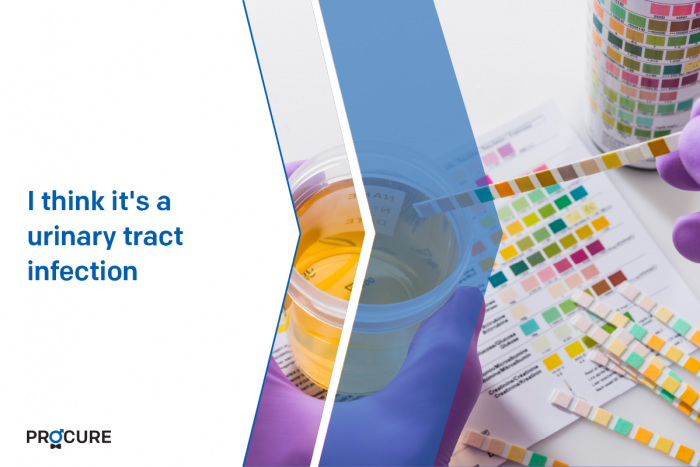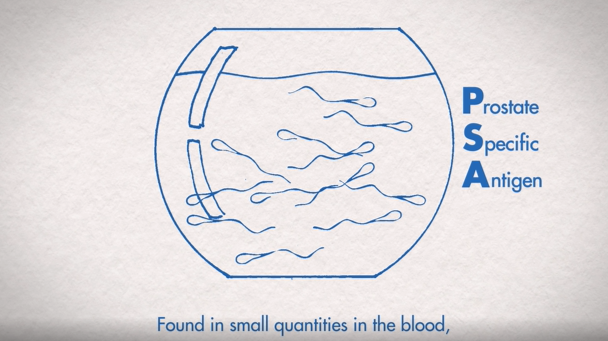Do you have urinary symptoms accompanied by pain or burning when you urinate? It could be a urinary tract infection. UTI is much rarer in men than in women. It has two major causes: a sexually transmitted disease or complications related to your prostate.
Infection can happen when harmful bacteria lodges in your urinary tract. It’s usually caused by your own bacteria when they end up where they don’t belong, and the most common type is E. coli, which normally lives in the intestines. Note, however, that other bacteria can sometimes cause a urinary tract infection.
The causes
UTIs most commonly occur in your bladder. For example, enlarged prostate or BPH can reduce your urine flow and make it harder to empty your bladder completely; it’s that feeling of being unable to empty the bladder completely. The remaining urine can then constitute a favorable environment for the proliferation of bacteria. Other causes may include:
- Poor hygiene of the genitals
- Dehydration (urine stays longer in the bladder).
- Severe diarrhea or constipation (in this case, the intestines can push on the bladder or urethra and prevent the bladder from emptying).
- Passing a catheter or cystoscope through the urethra
Symptoms of UTIs
The symptoms of a bladder infection tend to come on suddenly. You could have:
- pain or burning sensation when you urinate
- a need to urinate more often than usual
- a feeling like you need to urinate immediately
- a weak stream and difficulty urinating
- a dark, cloudy, or smelly urine
- pain in your central lower abdomen
- traces of blood in your urine
Diagnosis is based on the combination of symptoms and clinical signs and the absence of clinical manifestations that can point to another diagnosis, such as prostate or testicular pain during the examination.
Its treatment
It is necessary to perform a urine culture to identify the bacteria and then determine the type of antibiotic that is most effective against it. Bladder infections usually go away quickly and without complications.
- If you have been prescribed an antibiotic, take it until the last dose even if you feel better.
- You can take acetaminophen or ibuprofen to control pain, fever or discomfort, unless another medicine has been prescribed for you.
- Drink enough fluids (2L to 3L per day) to help flush bacteria out of your bladder.
After starting antibiotics, you should feel noticeably better within two to three days. If your symptoms don’t clear up after taking your antibiotics, see your doctor.
Infection of the prostate
Men who have prolonged UTIs, or UTIs that come back frequently, should be evaluated by a doctor for conditions like an infection in their prostate gland (prostatitis). Prostatitis shares many of the same symptoms as UTIs.
If it is accompanied by fever, chills and pain, you may have acute bacterial prostatitis. If this is the case, see your doctor immediately or go to the emergency room.
In the case of acute prostatitis, it takes 3 to 4 weeks of antibiotics to obtain an effective result. Why? Simply because antibiotics have trouble reaching your prostate. Finish the entire course of treatment: insufficiently treated prostatitis can become chronic; it will then be much more complicated to treat.
If you have any unusual and persistent symptoms, see a doctor!
Discover our new animated videos
Discover three new animated videos, each equally unique and original from one to the other. Be on the lookout!
Here is the first one – Symptoms, Risk and Screening
Take the time to visit each of our pages on this website, as well as our YouTube channel, in order to get familiar with the disease with our expert lectures, our section on available resources, the support that is offered to you.
Do you have any questions or concerns? Above all, do not hesitate. Contact us at 1 855 899-2873 to discuss with a nurse specializing in uro-oncology. It’s simple and free, like all our services.
Pages of our site that might interest you
Want to know more? Just click on the link below.
Prostate diseases
Complementary and alternative medicine
PROCURE news that may interest you
Each week, we publish a blog article. Here are a few for you.
Blood in the urine – what does that mean exactly?
Worried about your symptoms? When to consult!
My bladder is full and I am no longer urinating!
Sources et References
Infection urinaire chez l’adulte: INESSS-Octobre 2017
Infection vésicale; Manuel Merck
Written by PROCURE. © All rights reserved – 2021



 ADDITIONAL RESOURCES
ADDITIONAL RESOURCES


